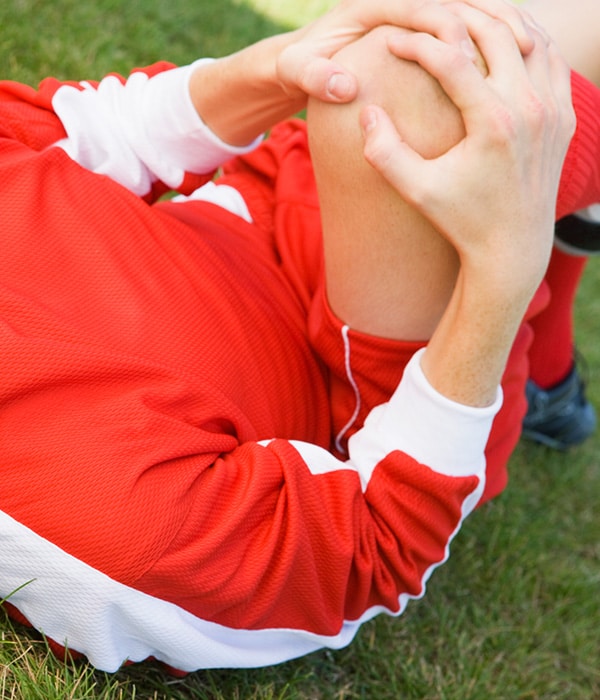
Sports injuries can be very disappointing, but it’s important to know how to respond if you or your child gets hurt during a game. A proper response is particularly important for adolescent athletes, who are still growing; injuries can affect adolescents differently than adults, and failure to receive proper treatment can lead to bigger problems later on in life.
1. Let your coach know immediately.
Your coach needs to know if you think you might be injured so that he or she can respond appropriately and substitute in another player while you get checked out. A coach should be able to spot the potential signs of an injury and make the right call about whether to take you out of the game or not.
2. Don’t downplay symptoms.
Injuries can be very disappointing for athletes, and it’s common to downplay symptoms so you aren’t taken out of the game. It’s important to accurately describe your symptoms so that you aren’t allowed back in the game with a serious injury. In some cases, like with concussions, you may not feel pain, and symptoms may not be obvious. This is why it is important to report exactly how you are feeling, even if you think the symptoms are minor.
3. Stop playing—don’t feel pressured to continue.
Sometimes athletes feel pressure to continue playing even if they know they are injured. They may feel pressure from parents, coaches, and teammates, or they may be pressuring themselves to continue for fear of letting down everyone else. However, it’s important not to play with an injury, no matter how minor it may seem at the time, to avoid making the injury worse.
4. Get treatment immediately.
Whether the injury is caused by sudden trauma during the game or is the result of overuse, the sooner you get treatment, the better. Failure to receive proper treatment could result in permanent damage. Treatment may mean that you will have to sit out of some games, but if you continue to play while injured, you could make the injury worse and have to sit out for an even longer period of time. The sooner you get treatment, the sooner you can recover and get back on the field.
5. Do not return to play until you are fully healed.
If you attempt to play again before all of your symptoms are gone, you have a higher risk of re-injury. You need to be cleared by your doctor before you can get back in the game. Depending on the type and severity of your injury, this may take some time, but it’s worth it in the long run. It’s understandable that you want to get back in the game as soon as possible, but don’t rush back in before you are ready. Your doctor may suggest working with a physical therapist to help you regain full range of motion and strength in the injured area. Although it may be a lengthy process, you need to put yourself and your health first to fully recover.
Despite our best efforts to prevent sports injuries, athletes will get hurt sometimes. When an injury does happen, it’s important to respond appropriately for the best possible outcome.